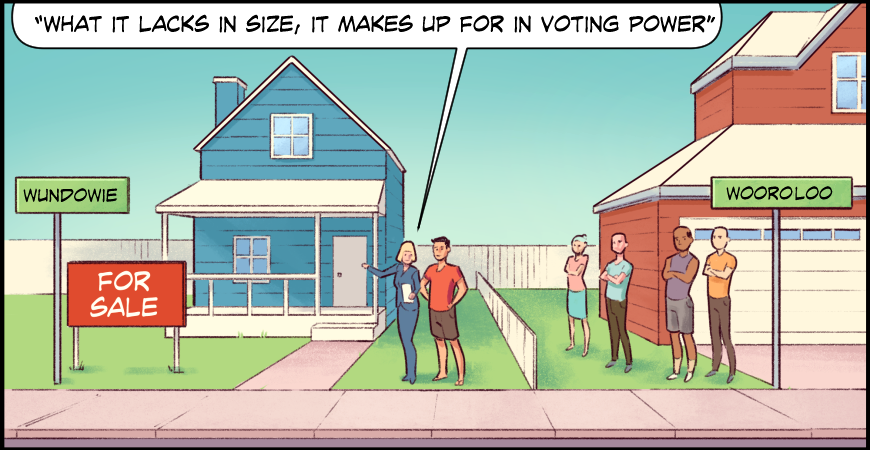Speculation has been rife that reforms to the Western Australia’s Upper House, the Legislative Council, were on the horizon since a number of single-issue candidates were able to gain seats with staggeringly low primary votes at the 2021 state election.
However, the degree and nature of the reform introduced by the McGowan Government last week has gone beyond the more measured approach expected by forecasters like my colleague Amy Blom.
The reforms included in the Constitutional and Electoral Legislation Amendment (Electoral Equality) Bill 2021 are based on the recommendations of the independent Ministerial Expert Committee on Electoral Reform, chaired by Malcolm McCusker, WA’s 31st Governor.
The main reforms are:
- The Legislative Council will become a whole State electorate with 37 Members (it currently has three metropolitan electorates and three country electorates each returning six members for a total of 36 Members)
- Group Voting Tickets will be abolished and optional preferential voting introduced
There seems to be very little disagreement that the Group Voting Ticket system that led to the election of Daylight Saving Party MP Wilson Tucker with just 98 votes was broken and needed fixing. But the decision to remove regional vote weighting has, unsurprisingly, split opinion. Opposition and Nationals WA leader Mia Davies declared that regional Labor MPs had “turned their back on their constituency” and were “traitors to their communities”.
The creation of a single, statewide electorate means that every vote for Legislative Council candidates will now carry equal weight, correcting what was the most malapportioned electoral system of any Australian state or territory. In delivering one-vote-one-value in the upper house, the reforms remove the malapportionment not only between metropolitan and non-metropolitan electorates, but also between the three non-metropolitan electorates.
In his second reading speech, Attorney General and Minister for Electoral Affairs John Quigley provided the following glaring examples of the existing malapportionment:
- A vote in Broome is worth 6.2 times more than a vote in Burns Beach
- A vote in Kalgoorlie is worth 3.5 times more than a vote in Albany
- A vote in Kalbarri is worth 1.5 times more than a vote in Geraldton
- A vote in Wundowie is worth 4 times more than a vote in Wooroloo (towns which are 9km apart)
In its report, the Expert Committee provided an annexure with all the arguments that it was given for and against regional vote weighting. It was argued that by removing the distinction between metropolitan and non-metropolitan regions and abolishing specific non-metropolitan electorates, regional representation is being reduced. The counter argument to this is that there is no justification for the electoral system to be weighted on a geographical basis because proportionality will ensure a diversity of views are represented in the Legislative Council and additional resourcing for regional members of Parliament will remain.
However, the Committee was only asked to examine how (not whether) to achieve electoral equality, so its report did not engage with those arguments.
The implications of these major changes are wide ranging and significant in relation to how parties select their candidates and how they campaign across what will be a single, but extremely diverse, electorate. Because the major parties will need to attract votes across the state, the regions cannot be ignored. Parties will need to pre-select candidates who can effectively represent the interests of electors throughout the state, including candidates who will be readily identified with particular regions and regional interests.
The new system will pose challenges for the non-Labor major parties, the National Party in particular. Despite its current status as the majority Opposition party, the National Party has historically been the junior partner in coalitions and alliances with the Liberal Party (whether in government or opposition) and has rarely run candidates or actively campaigned in the metropolitan area. The creation of a single State-wide electorate means that the National Party cannot afford to vacate this space and makes all the more compelling the need for it to come to an agreement with the Liberal Party ahead of the next election. Whether this is a formal coalition agreement or even a merger as occurred in Queensland with the creation of the LNP, the Liberals and Nationals will need to maximise their efforts against WA Labor rather than compete with each other for votes across the State.
The quota of the vote for a candidate to be elected will be just 2.63 per cent (reduced from 14.28 per cent in the current regions). Consequently, a range of diverse interests will be able to access seats in Parliament. All interests will be able to compete on an equal basis for a share of parliamentary power. Minor parties such as the Australian Christians, which have historically received about 2 per cent of the statewide upper house vote without getting any of their candidates elected, will have a much lower hurdle to overcome. Meanwhile, the Greens WA may see its level of support across the state become far more accurately reflected in the number of seats it wins. While some commentators have suggested that the reforms will mean the end of the Nationals as a meaningful force in the Upper House with a state-wide vote of only around 2 per cent, their status as the official Opposition means that in the lead up to the next election they have the best opportunity in their history to campaign not only in the regions, but in the metropolitan area and lift their overall vote to something more significant.
The ultimate impact of this reform won’t be known until the next election, but it seems almost certain that broadly based minor parties will establish more of a foothold and single-issue abberations like Daylight Savings will go the way of the dinosaur.
 ReGen Strategic
ReGen Strategic